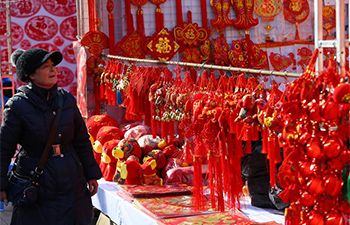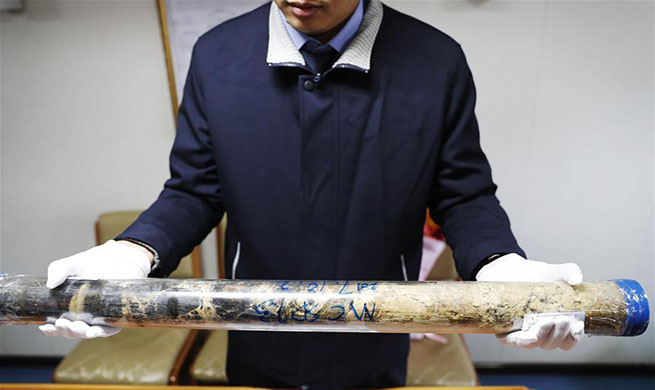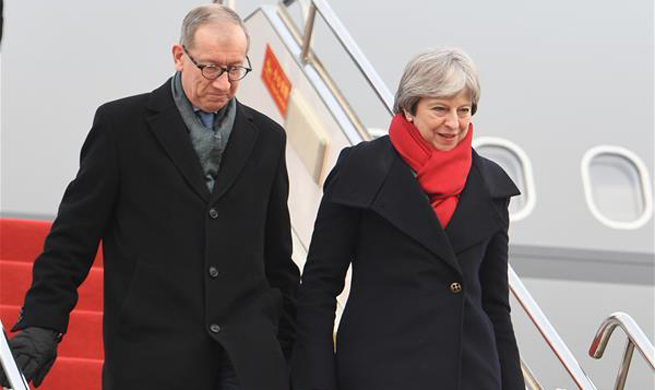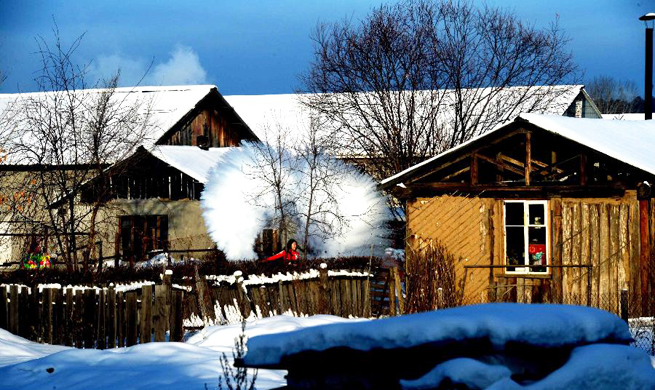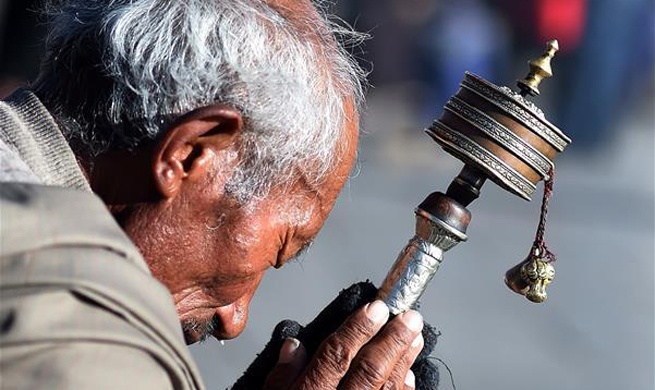WASHINGTON, Jan. 30 (Xinhua) -- In their first session of strategic dialogue, the United States and Qatar outlined the areas for their future cooperation to mend ties disrupted by the Gulf diplomatic rift that was fueled by Trump's accusation against Doha.
U.S. Secretary of State Rex Tillerson and Secretary of Defense James Mattis co-hosted at the Department of State the High-Level Opening Session of the Inaugural U.S.-Qatar Strategic Dialogue with their Qatari counterparts, namely, Foreign Minister Sheikh Mohammed bin Abdulrahman Al Thani and Defense Minister Khalid bin Muhammad al-Atiyah.
During Tuesday's event, the United States and Qatar signed multiple memorandums of understanding between the two countries on issues including human trafficking and agreed to create a bilateral group on labor practices. On Monday, the two countries signed an agreement on civil aviation.
Speaking of the current diplomatic standoff between Qatar and four Middle East nations, Tillerson said the United States remains concerned about the Gulf dispute as it "nears the eight-month mark."
"This dispute has had direct negative consequences economically and militarily for those involved, as well as the United States. We are concerned by the rhetoric and propaganda employed in the region, playing out daily in Arab mainstream and social media," he said, calling on all parties concerned to "minimize rhetoric, exercise restraint to avoid further escalation and work toward a resolution."
For his part, Mattis urged the Gulf Cooperation Council (GCC) to recover its "cohesion" so that Gulf nations could "return to mutual support through a peaceful resolution that provides for enhanced regional stability and prosperity."
In response, Al Thani said Qatar and its people have been "illegally and unjustifiably" blockaded.
"This blockade disrupts the joint efforts in providing stability for the region," he said, adding that Qatar will host the second round of U.S.-Qatar Strategic Dialogue in Doha next year.
The nation's defense chief also said that "the brave people of Qatar stood firmly with their leader in face of the mounting hostility directed toward their country."
"Since our inception, there has been those who wish to impose their domain over us," al-Atiyah said. "Qatar did not waver then and it will not waver now ... They refused to be manipulated or used as a pawn in an arbitrary and pointless conflict."
Last year, Saudi Arabia, the United Arab Emirates, Bahrain and Egypt announced on June 5 that they had severed diplomatic ties with Qatar and imposed sanctions on it, accusing Doha of "supporting terrorism" and "undermining regional security" by seeking closer ties with Iran. Libya, Yemen and the Maldives followed suit.
Qatar strongly denied that it funded or supported extremist groups, saying the accusations were "unjustified" and "baseless."
The standoff, rather than showing any signs of abating, has been exacerbated by remarks of U.S. President Donald Trump, who said in June that Qatar had funded terrorism "at a very high level."
U.S. relations with Qatar have long been complicated since the Gulf state is also a close military partner. Qatar hosts the largest concentrated military presence in the Middle East at the Al Udeid Air base, which is the center for U.S. air operations over Syria, Iraq, Yemen and Afghanistan.
Mattis said the base was "critical" in the battle to defeat the Islamic State (IS) and plays a role in the U.S. strategy in Afghanistan.







